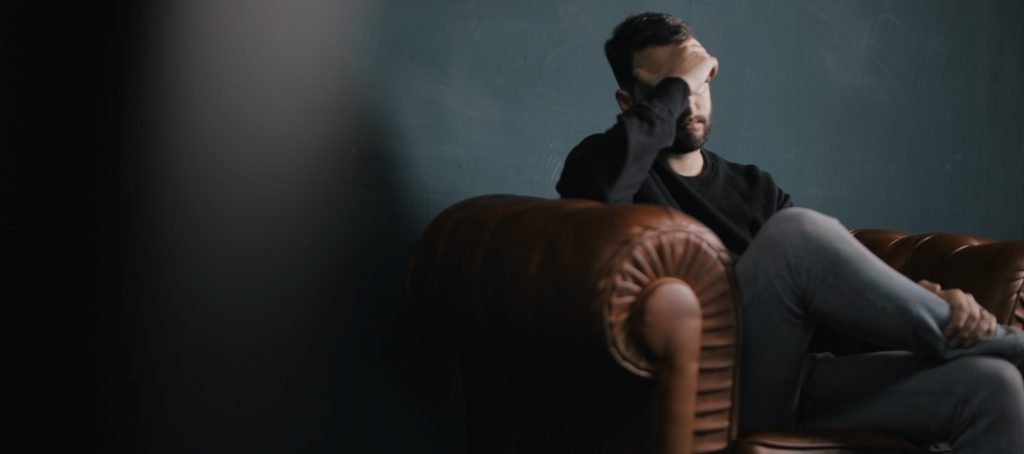It would be unfair to blame chronic marijuana use on negligence, carelessness, or even plain stupidity. Some people who have turned to cannabis for relief could also end up as regular users. The continued use over a long-term period could, at some point in time, lead to withdrawal symptoms upon abstinence. Regardless if you want to take a break or quit, here’s what you need to know and how to cope.
Page Content
Symptoms Of Marijuana Withdrawal
For casual consumers, stopping the use of marijuana is not a problem at all. That is not the case with regular users in which up to 47% could experience cannabis withdrawal symptoms, as derived from 47 studies involving over 23 thousand participants.
Emily Feinstein, the Exec VP of the Center on Addiction in New York City, has this to say. “The results suggest that withdrawal is likely or possible for a large majority of users, particularly heavy users.”

In most cases, cessation from marijuana use after prolonged or long-term use prompts light to moderate mood and behavioral symptoms. Some individuals, on the other hand, may also experience more severe symptoms.
As a result of compelling studies demonstrating cannabis withdrawal symptoms (CWS), the American Psychiatric Association added it into DSM-5 classification as part of the “Substance-Related and Addictive Disorders” section.
As defined in the DSM-5, marijuana withdrawal symptoms occur if you experience 3 or more of these symptoms within a week of abstinence:
- Irritability, anger, and aggression
- Nervousness, or anxiety
- Sleep problems
- Changes to appetite, or weight
- Restlessness
- Depressed mood
- Headaches, sweating, nausea, or abdominal pain
Why You Experience Cannabis Withdrawal Symptoms
Compared to other drugs and dangerous substances, withdrawal symptoms from marijuana are not as severe as others. A little over half of the chronic users are not even likely to experience any of the symptoms. But for those that do, what is the cause?

The culprit, in this case, appears to be THC, and it has something to do with building tolerance to this compound. Regular users who have grown accustomed to a certain level would feel that the effects are diminished. To attain the desired experience, they typically resort to upping the dosage or switching to more potent strains.
Over the long-term, the body gets used to the presence of THC. You could say that this is a form of addiction. Once deprived, nearly half of chronic users are likely to experience physical, psychological, and emotional symptoms, and it has a clear timeline.
- Symptoms begin within a week after discontinuation.
- The symptoms peak within 10 days after cessation of use.
- After the peak, the symptoms decline in severity over the next 10 to 20 days.
Here is a detailed look at the marijuana withdrawal timeline:
| First 3 to 5 days | You experience zero symptoms. You can go ahead with life, and it is like you can live without any cravings. It seems like you have forgotten about your marijuana days. |
| 6 to 7 days after | Some may feel subtle fever-like symptoms. Also, the severity varies from one person to another. |
| 7 days to 2 weeks after | The withdrawal effects heighten and peak. At least 3 or more of the symptoms become intense. It is during this period when your resistance to the craving is tested. |
| 2 weeks onward | The severity of withdrawal symptoms begin to decline steadily day after day. How long it takes depends on numerous factors, including the potency of the strain and the frequency of marijuana use. |
Coping With Marijuana Withdrawal
Whether you’ve decided to employ the “cold turkey” technique for your marijuana use, or consulted with a substance abuse specialist, knowing what to expect is the first step towards weaning off the substance. Knowledge helps prepare your coping mechanisms and practicing strategies advised by your doctor. Here’s our quick rundown of what you can do to minimize or cope better with marijuana withdrawal symptoms.
1. Prepping The Body For Cold Turkey
The presence of THC in your body affects your brain functions. What the brain has deemed as healthy will eventually be changed when you take THC away. “Ultimately, it’s not a psychological process,” Roger Roffman, a University of Washington researcher, said. “It’s a physiological change in the brain as the body becomes adapted to marijuana no longer being there.”
As a means of adapting to such critical change, the preparation of the body is essential. Before the 24-hour mark of your desired cessation date, you can follow these healthy steps.
- Exercising for a few rounds to get your body moving is a natural mood booster. Through sweating, you eliminate more cannabinoids from your body. Not to mention, it also distracts you from post-cessation marijuana cravings.
- Fuel your body with a nutritious diet. Either you or have someone cook a healthy meal. Better yet, learn a new recipe that you can try. Stay away from junk food like potato chips and take-outs that make you feel irritable, sluggish, and unhealthy.
- Drink lots of water. Keeping your body hydrated is an excellent way of flushing out THC and other cannabinoids through sweat and bodily excretions. If dull and bland water does not seem exciting, you could try fruit shakes (without the added sugar) or squeeze a lemon in your drink. Stay away from sugary or caffeinated beverages in the meantime.
- Catch up with family members, friends, colleagues, or schoolmates. Re-build relationships and express your need for their support. Having a support system is crucial in going clean. You can communicate with them to help you when you are struggling with urges. Plus, a sense of accountability grows when you talk about your desire to say goodbye to marijuana use – temporarily or permanently.
2. Join Support Groups
Surrounding yourself with people who support your decision to be clean is invaluable. When you feel like succumbing to urges, you can depend on them to redirect you to the path of cessation. In a support group, the idea is that each one – including you – will help each other offering positivity, motivation, and other means to help one another.
If you are not aware of a suitable support group, a quick internet search may help. Or, you could ask your substance abuse specialist who, for sure, can point you in the right direction.
3. Counseling Or Therapy
The thought of being surrounded by peers may not appeal to you. In this case, you could opt for counseling or therapy. Speaking to someone you are confident with and trust regarding withdrawal concerns is similar to unloading a heavy burden that can positively affect your recovery.
With counseling, you attend sessions regularly and work with a psychotherapist to manage your mental health. Moreover, you work with a health expert to personalize your withdrawal mechanisms.
4. Following Outpatient Programs
Aside from therapy, peer-to-peer group sessions, and mindfully choosing health-conscious decisions, here is another way of coping – outpatient programs. You follow a set of activities or programs determined by a doctor, therapist, or substance abuse expert to manage your withdrawal symptoms effectively.
These activities included attending sessions regularly. Your healthcare provider will check your progress, and you do not need to be admitted to a healthcare facility for monitoring.
5. Rehabilitating Or Being Admitted To Detoxification Centers
For more severe cases of CWS, going cold turkey may not be a suitable option since the severity of symptoms can be too much to handle. In extreme situations – impaired cognitive and body functions – being admitted to a rehab or a detoxification center may be the only solution.
Such a facility can help you determine the underlying causes of abuse and treat it from the roots. They can guide and effectively help you manage withdrawal symptoms.
Freeing Yourself From Marijuana Use
Marijuana use has its fair share of benefits. From recreational to medicinal use, there is a risk of abuse. In this day and age, most of the strains are insanely potent. Unless you have the discipline to keep the dosage minimal and usage rate low, it is easy to build THC tolerance. Once that happens, the chances of withdrawal symptoms increases.

If you did decide to stop marijuana use, then try to adhere to the tips provided in this article. As a chronic, heavy user, you might need professional help. Whatever the case may be, it is doable. Good luck if this is the path you take.





